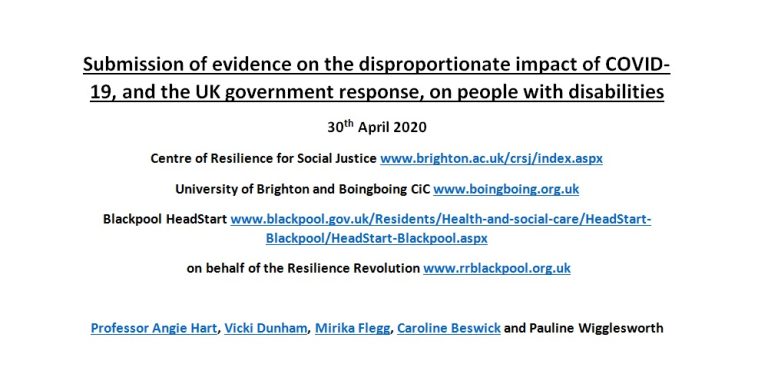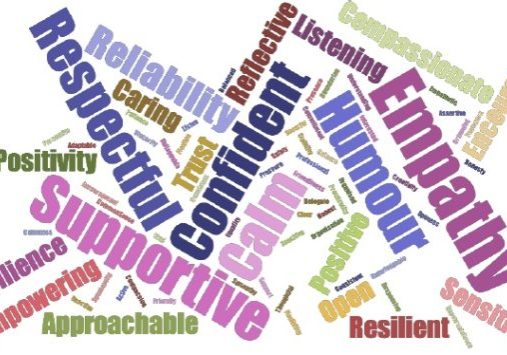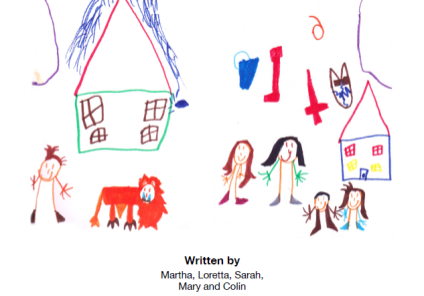Submission of evidence on the disproportionate impact of COVID-19, and the UK government response, on people with disabilities – Professor Angie Hart, Vicki Dunham, Mirika Flegg, Caroline Beswick and Pauline Wigglesworth – Centre of Resilience for Social Justice at the University of Brighton, Boingboing, Blackpool HeadStart and the Resilience Revolution
30 April 2020: In this submission we draw on our collective organisational and personal experiences, relating them to policy and practice changes currently happening. We are a community of academics, students, practitioners, parents/carers and young people working together to beat and change the odds, as and with disadvantaged communities. Many of us have our own complex life challenges including physical and learning disabilities. Some of us are already experiencing adverse effects of the changes to government legislation.
We outline and discuss how people with disabilities in the UK are likely to be disproportionately affected by COVID-19 and the UK government’s response to it (for example the Coronavirus Bill). We also make recommendations for immediate and more long-term interventions. On 30 April 2020 this report was submitted to and accepted by The Women and Equalities Committee’s Inquiry: Unequal impact: Coronavirus (Covid-19) and the impact on people with protected characteristics.
You can download and read our response. You might think about sending our response to your local MP, who can then draw on it for their own lobbying purposes.



